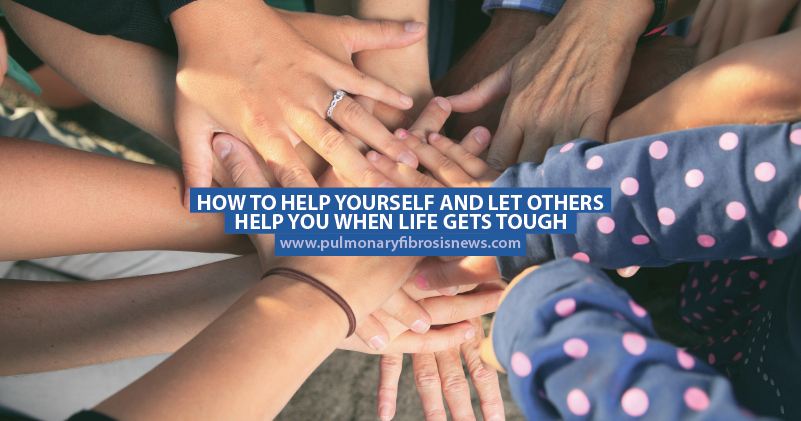How to Help Yourself and Let Others Help You When Life Gets Tough

For a patient with a life-threatening illness, there is nothing more difficult than asking others to help them with a task that they were once able to do independently. Having to do this highlights the fact that as a chronic illness progresses, including pulmonary fibrosis (PF), a patient’s physical abilities often regress.
The regression can be gradual or rapid, but regardless of how quickly things change, it can bring on some pretty intense emotional turmoil. When things get tough emotionally or physically, it’s easy to feel like life has become overwhelmingly difficult. It’s important to be mindful of ways to help counter these thoughts and identify ways to help yourself feel better. It is also important to think of ways that others can help you when PF-related issues become overwhelming or tough to handle.
Here are some tips to help you through difficult periods:
Don’t feel guilty for being selfish and stating what you need.
This is arguably one of the hardest things to do as a patient. There are many things a chronic illness patient may feel guilty about, including asking others for help, saying no when help is requested or not attending social functions. The fact is, you cannot do what you physically could before your diagnosis. Tell others how they can help you, and those who love you will want to. Just be careful not to take advantage of one person’s help, as this might burn them out, and spread your needs out across your network so the responsibility can be shared.
MORE: Four tried-and-true tips for dealing with a chronic illness
Let go of not being able to be there for others right now.
Naturally if you ask for help, you are going to want to return the favor by helping others. Unfortunately, this isn’t always possible when you are living with a life-threatening illness. Wanting to be there for others emotionally and physically is a special part of friendship, and not being able to reciprocate is quite difficult. However, it’s important to let go of the fact you can’t be there for others and put yourself first.
Let others know that just because you appear well, doesn’t mean you are.
Many chronic illnesses are invisible, which means friends and family can’t know how you are doing unless you are honest with them. It’s easy to get upset with others who assume you’re feeling well, but they don’t know any different. Help them by sharing how you’re feeling on the inside, regardless of how you look on the outside.
Process emotions as they come and let others know about them.
Identifying someone with whom you can be completely vulnerable with during this journey is very important. Many emotions, thoughts and fears flood patients on a regular basis as they are learning to cope with a life-threatening illness, and working through them with others is necessary. Intense emotions can happen at the most inconvenient times, but it’s important not to subdue them. Quietly excuse yourself and find somewhere with a bit more privacy and allow yourself to feel whatever you’re feeling.
MORE: Three professionals to talk to before traveling with pulmonary fibrosis
Pulmonary Fibrosis News is strictly a news and information website about the disease. It does not provide medical advice, diagnosis or treatment. This content is not intended to be a substitute for professional medical advice, diagnosis, or treatment. Always seek the advice of your physician or another qualified health provider with any questions you may have regarding a medical condition. Never disregard professional medical advice or delay in seeking it because of something you have read on this website.






